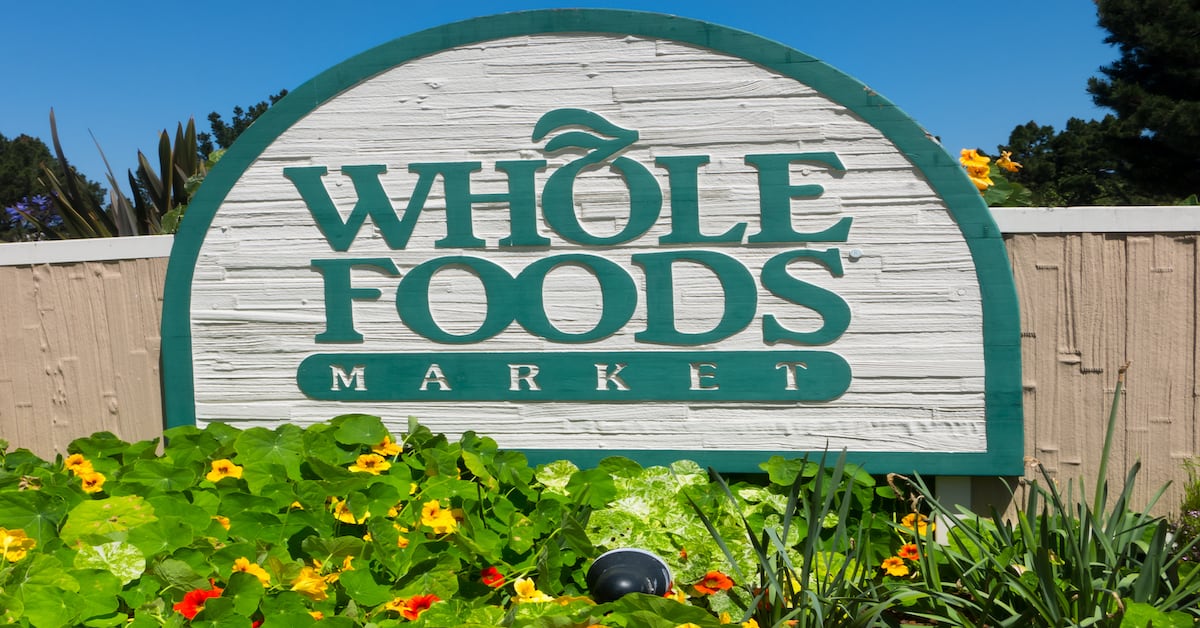Is Whole Foods Worth the Cost? (Yes, Here’s Why)

This is a question that regularly comes up whenever there is a discussion about groceries, grocery prices, and grocery stores. It seems that Whole Foods has a reputation for being expensive, and that reputation has drawn people away from the store. Many people have their minds made up that Whole Foods is not worth the cost, but that opinion may not translate to reality.
So, is Whole Foods worth the cost?
Yes, Whole Foods is a high-end store that offers high-quality products, and therefore, it will be more expensive than a lower or mid-level store. But Whole Foods also has some items with its store brand 365 that are priced competitively with the larger supermarket chains.
Knowing the price of many items and an abundance of specialty items at Whole Foods, most people certainly would not want to make it their primary grocery store. But there can certainly be some good bargains at Whole Foods compared to similar items available at other grocery stores.
Let’s dive in to explore how Whole Foods is different than other grocery stores and why some people prefer shopping there.
Our high quality standards remain at the core of what we do and will not change. Amazon strongly supports our quality standards and commitment to sourcing from local suppliers.
— Whole Foods Market (@WholeFoods) February 4, 2018
How Is Whole Foods Different?
Whole Foods insists on the highest quality standards for the products they offer. While Whole Foods’ prices are higher than a supermarket chain, it is also a fact that Whole Foods has some items priced competitively with the larger supermarket chains.
This is especially true for Whole Foods’ store brand, “365”, which consistently meets or beats the pricing of other store brands or even premium brands.
While pricing may not seem to be much of a differentiator, quality is. It has been said that Whole Foods serves as a buyer for its customers as opposed to an outlet for manufacturers. And this makes sense since there are many products the company simply will not buy.
Examples of that would be items containing artificial colors, flavors, preservatives, or hydrogenated fats. You can find Whole Foods’ strict quality guidelines on its website.
Whole Foods also has high-quality standards for their meats, including that all animals are humanely raised, and all of which are traceable to the farms they came from. The seafood that Whole Foods sells is either humanely farmed or sustainably caught in the wild.
After Amazon’s acquisition, Whole Foods became a grocery store backed by an e-commerce giant, making it different from other supermarket chains. One of the advantages from a shopper’s perspective is the exclusive discounts and benefits offered to Amazon Prime members shopping at Whole Foods.
I covered that topic in another article, so if you’re interested in finding out more about Amazon Prime benefits at Whole Foods, you should check out that article.
@loveherdemi When you are happy, we are happy!
— Whole Foods Market (@WholeFoods) April 9, 2014
Why Do People Shop at Whole Foods?
People shop at Whole Foods for varied reasons, but the two main reasons are the quality of products Whole Food offers and its environmental stewardship.
Let’s explore what Whole Foods’ quality standards are and how they positively impact the environment.
Whole Foods High-Quality Standards
Whole Foods insists on the same high-quality standards for its other products as it does for its meat and fish. It guarantees that the produce purchased from them is organic.
The same goes for their dairy products, all of which are labeled to inform the customer. Furthermore, all foods labeled non-GMO are third-party verified.
Its household goods are similarly monitored for quality and non-polluting ingredients. Certain compounds are banned from the cleaners, yet the cleaners perform as well as popular brand names.
Products in the Health and Beauty section at Whole Foods also have similar high-quality standards. The vitamin supplement brands carried by Whole Foods are certified for their standards of purity and efficacy.
In addition, beauty products are certified and also not animal tested. Meaning no animals were harmed to produce them.
Positive Impact on the Environment
The second reason people shop at Whole Foods is their environmental stewardship. Because Whole Foods is selective about the products they offer, customers know that they are helping, in whatever modest way, to change how the planet is treated.
The combination of guaranteed quality and an environmentally friendly supply chain delivers a value to Whole Foods customers that is worth more than the price in many cases.
Finally, consumers are now more conscious of how they get their food, and it’s becoming important to more people daily.
Having high-quality standards and a planet-conscious approach takes a bit more work and time, and the costs are a simple reflection of that.
What is the Difference Between Whole Foods and Trader Joe’s?
Whole Foods is known for its selection of organic and non-GMO products, which is the company’s foundation. Although Trader Joe’s offers an organic product line that is well designed and presented, its selection is more limited than what is found at Whole Foods.
Both Trader Joe’s and Whole Foods offer a great shopping experience. As previously mentioned, Whole Foods have a larger selection of organic products than Trader Joe’s. Whole Foods also has a good variety of allergen-free products in its selection of food and health, and beauty products.
Being able to find allergen-free items on the shelf is a great convenience for many shoppers!
Regarding the prices, the best way to determine who has the better price is a like-to-like comparison because each store has competitively priced goods that reflect its own market approach.
Another difference between the two stores is that Whole Foods prefers shoppers to linger around awhile at stores. They tend to have a large selection of imported cheeses and wines and also house bakeries and pizza counters.
Trader Joe’s does not have these counters in stores as they are more geared toward those who know what they want and just want to be in and out of stores.
Is Whole Foods or Fresh Market Better?
Whole Foods and Fresh Market have comparable prices and product quality. If you are looking for a personalized and intimate shopping experience, Fresh Market is better. If you are looking for a larger selection of products and a closer shopping experience at a supermarket, Whole Foods is better.
Let’s continue to explore the differences between Whole Foods and Fresh Market to see how they compare.
Whole Foods vs. Fresh Market: Shopping Experience
Fresh Market is more of a specialty items store, whereas Whole Foods strives to be a healthy natural foods store. Whole Foods stores tend to be larger, and an easier step from a regular supermarket experience, and Fresh Market offers a smaller and slower pace of shopping experience.
A smaller venue like Fresh Market makes for a more intimate shopping experience reminiscent of shopping in a European market.
Whole Foods vs. Fresh Market: Product Quality
Both Whole Foods and Fresh Market work with local farmers and ranchers to stock much of their shelves. However, being a smaller store, Fresh Market tends to be more community-oriented. A closer focus on the community means a better selection of fresh seasonal products.
Fresh Market has the agility to focus on bringing in higher-quality products. They can do this by not trying to be everything to everyone but by having a specifically focused niche at which they excel.
Typically, the quality of produce will be better at Fresh Market, whereas a wider selection of products will be found at Whole Foods. Whole Foods has an expansive selection of cheeses and deli products, but Fresh Market doesn’t have these features.
Whole Foods vs. Fresh Market: Prices
Pricewise, the two stores are reasonably comparable. However, you are not likely to get all your shopping done at Fresh Market due to the limited selection of products.
Overall, Whole Foods and Fresh Market certainly overlap regarding their target consumers and product quality. Each may offer a better price or even better quality on an item that they carry at any given time.
Summary
In this article, we covered why Whole Foods’ prices are higher than the larger supermarket chains and if the extra cost is worth it. We learned that Whole Foods offers high-quality products that are organic and environmentally friendly because of its strict sourcing policies.
We also compared Whole Foods to Trader Joe’s and Fresh Market, which are the closest stores to Whole Foods in terms of concept, product quality, and prices.
Overall, Whole Foods is a great grocery store that offers high-quality products and positively impacts the environment. What makes one store better than another is one’s preference when it comes to the shopping experience. If you’re looking for specific items that are only sold at Fresh Market or Trader Joe’s, both are good choices as well.
If you are interested in finding out more grocery shopping tips, check out the related articles below:
Related Articles:
Amazon Fresh vs. Whole Foods: What’s the Difference?
Whole Foods Cakes: Your Guide to Ordering Cakes From Whole Foods
Can You Use Amazon Gift Cards at Whole Foods? (No, But Prime Works!)
Does Trader Joe’s Have Delivery? (No, but This Option Works)
Whole Foods Pickup: Everything You Need to Know Before Ordering

